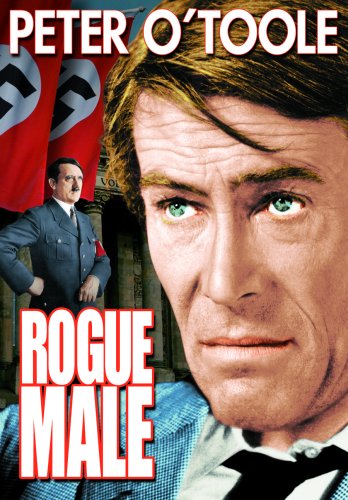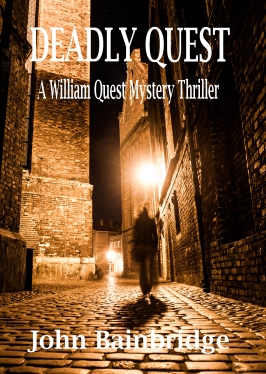Several times on this blog I’ve mentioned my enthusiasm for Geoffrey Household’s classic chase thriller Rogue Male. I’ve already reviewed the Walter Pigeon film Man Hunt, Hollywood’s take on the novel, and the book itself. (see blogs passim).
for Geoffrey Household’s classic chase thriller Rogue Male. I’ve already reviewed the Walter Pigeon film Man Hunt, Hollywood’s take on the novel, and the book itself. (see blogs passim).
Recently, I watched the BBC version from 1976, starring Peter O’Toole. I hadn’t seen this since it was first broadcast. My memory told me it was very good, and this film certainly lives up to my original good opinion. It comes the closest to the book.
Now, if you’ve never read Rogue Male, do seek it out. I won’t give any spoilers in this review. Its unnamed hero – called Robert Thorndyke in the film – attempts to shoot Adolf Hitler in the last days of peace in the 1930s.
In the aftermath of the attempt, the hunter becomes the hunted, There are some quite splendid chase sequences in the film – across Germany, through the London Underground railway, and finally into the downlands and hollow-ways of Dorset. Although some scenes are lost, inevitably for film time, the rest are portrayed with great fidelity.
Peter O’Toole was wont to remark that it was his favourite role in his long and distinguished acting career. It’s easy to see why.
There are some quite excellent supporting performances by the cream of British acting talent: Cyd Hayman makes a flashback appearance as Thorndyke’s lover. Michael Byrne is terrific and menacing as a Gestapo interrogator, John Standing is both urbane and threatening as Major Quive-Smith – sent by the Third Reich to track down Thorndyke, Alastair Sim is Thorndyke’s Cabinet Minister uncle (the only character who isn’t in the book). There’s an interesting appearance by the playwright Harold Pinter as Thorndyke’s solicitor Paul Abrahams.
But this really is Peter O’Toole’s film. I think it is the finest performance of his career. He really gets what it it to be hunted. He’s broken in so many ways by the events that sent him to Germany. He is physically and mentally scarred by what happens afterwards.
Household’s hero in the book tries to convince himself that getting Hitler in his gunsight was a sporting stalk, that he never intended to shoot. We see here just how that self-delusion came about.
Rogue Male is a particularly difficult book to film. The novel itself is told in the first person and the hero is a broken narrator. We see all of the action through his own thoughts. The hunter indeed becomes the hunted. Clive Donner’s direction of the film brings this out in a number of tense scenes, which evoke a real sense of fear. The location photography is beautiful and atmospheric, and adds to the sense of danger in some finely designed set-pieces.
A superb film in so many ways. There is said to be a new version being produced starring Benedict Cumberbatch. It will be interesting to see how he handles the character of the hunted man. I hope it stays similarly faithful to the book.


![The Seasiders by [Griffiths-Jones, A.J.]](https://images-eu.ssl-images-amazon.com/images/I/51i449F-YgL.jpg)
 Marchbanks for the friends of his son killed in action, among them is Lord Peter Wimsey.
Marchbanks for the friends of his son killed in action, among them is Lord Peter Wimsey.![The Wench is Dead (Inspector Morse Series Book 8) by [Dexter, Colin]](https://images-eu.ssl-images-amazon.com/images/I/51Ov4kzOIUL.jpg)